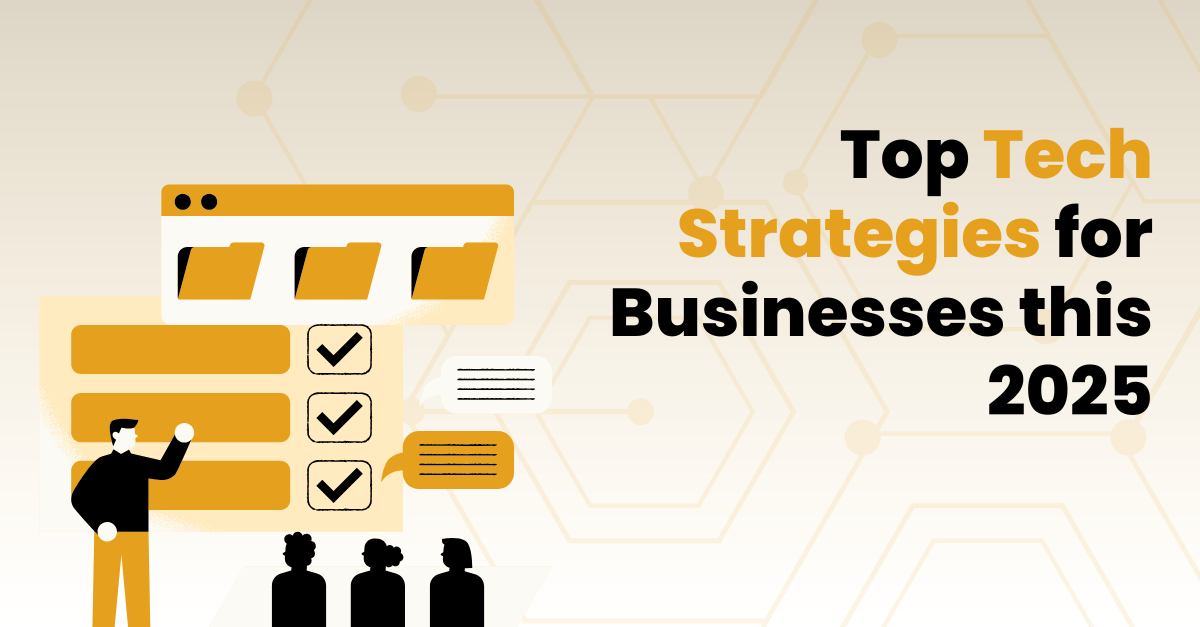Non-Technical Founders' Guide To Launching a Successful Startup
startups

In today's business landscape, possessing technical skills has become increasingly crucial for aspiring entrepreneurs and businesspeople. However, not everyone has the advantage of being technically proficient, yet they remain determined to launch their startup. For these individuals, the path to success may not be as straightforward and effortless as it is for their technically skilled counterparts.
Most non-technical founders face a lot of challenges ahead of them. These could include staying up-to-date on technology trends and innovation, communicating the technical aspects of the business, evaluating technical solutions, and the list goes on. Even so, several people managed to crack the code and achieve success in overcoming these challenges.
For instance, Brian Chesky and Joe Gebbia, the founders of Airbnb, were non-technical entrepreneurs themselves. They were simply graduates of industrial design and didn't have any programming background. Yet, they managed to expand and grow their business from mere room spaces to numerous lodging properties!
This only proves that anyone, regardless of lacking specific qualities, cannot just initiate a business venture but also steer it toward success. If you’re still unsure of the direction to take on your startup journey, below is a step-by-step guide to help transform your business from an idea to reality.
1. Find Your Unique Advantage
Before anything else, the first thing you have to do would be to acknowledge your skills and determine your strengths. As a non-technical person, try asking yourself questions like, "What aspects am I good at?" or "What things can I do that others can't?"
Consider your background, experience, knowledge, and anything more you think is essential in evaluating yourself. After you've thought of something, make sure that it's something that can set you apart from the competition and help you stand out in the market. While technical expertise is undoubtedly valuable, it's crucial to recognize that your skills and strengths are your true advantage.
As a non-technical founder, you bring unique insights to the table that can drive innovation and differentiation. Moreover, people like you have a deeper understanding of the market and customers; this equips you to make strategic decisions that align with their needs. Embrace your non-technical strengths and leverage them as powerful assets in building a successful startup.
2. Solve a Problem Using Your Unique Advantage
Now that you've identified your unique edge, the next step would be to think of a creative solution to address a persistent market problem. Remember that the keyword here too is "creative." To stand out in a market saturated with diverse business solutions, it's crucial to strategically leverage your skills and expertise to develop a truly unique business idea. Rather than just offering another generic solution, you need to think creatively about how to differentiate yourself.
To simplify things for you, consider this checklist in building your startup idea:
- The problem you're trying to solve is a confirmed unmet need in the market.
- There should be hints of innovative elements in what you'll be proposing.
- While it may be unique, check if your idea is also feasible.
- Make sure that it's truly aligned with your skills and expertise for better execution.
Let's try to go back to the story of how Airbnb started. At that time, their greatest competitors were inns and hotels, which dominated the accommodation market. Yet despite the competition, their business became a success. If you ask why, it's partly because they ticked everything in the checklist above.
First, they recognized the prevalent problem faced by many people: the lack of affordable and unique accommodation options. Traditional options were limited, prompting them to think outside the box. Their innovative approach was to monetize individuals' spare rooms, apartments, and properties by renting them out to travelers. It deviates from the traditional way hotels and inns operate and has enabled numerous people to become hosts and connect with travelers seeking accommodation.
Their backgrounds in industrial design helped them transform simple rooms and spaces into visually appealing accommodations. Moreover, the way they employed design thinking methodologies throughout the development of the business became one of the keys to its success. Not only did they understand the people's needs—they also brought their creativity into play.
3. Collaborate with Technical Experts
In this step, it's where we start to fill in the 'knowledge gap.' As mentioned earlier, technical expertise is vital in running any startup, which is why you still have to seek technical experts' assistance.
Sooner or later, your business will need to work on developing a website, mobile app, or even building your business products and services. In these instances, your non-technical advantage may not be sufficient to create and maintain these. Yet with their help, you will get to bring in-depth knowledge in software development, data analysis, user-experience design, and many more.
Hence, enabling you to achieve effective and well-built software for your startup. However, you also have to be careful when searching for technical teams to partner with. They may have the skill but sometimes, others can't deliver what you need. Therefore, it's essential for you to initially assess skills and knowledge by either looking into past projects or conducting interviews.
If you're seeking a trustworthy and highly skilled tech team at your service, look no further than our company, JLabs. As a trusted group of technical experts, we are committed to delivering top-notch solutions tailored to your specific needs. From the web, and mobile, to custom software development—our team always promises to deliver in the most efficient way possible.
4. Build Your MVP
By this time, you should already have an idea of the products and services you'll be launching in your startup. The next thing after that is building your Minimum Viable Product (MVP). If you're familiar with how it works, you must know that it's one of the crucial parts of the early stages of your startup journey.
Developing your MVP includes testing out your product or service's viability in the market and collecting feedback from early users. And if you're wondering why it's important, that's because it can help you minimize the amount of time and effort you invest in your product launch. Moreover, it provides you the opportunity to fine-tune them based on the needs and feedback of the market.
This step can be pretty challenging for non-technical entrepreneurs as it quite relies on the technical side of things. However, as a company that specifically caters to startups and entrepreneurs, we provide a three-phase solution for you. From prototype design to launching your MVP and handling the marketing adjustments, we can assist you.
Discover Your Growth Hacking Strategies
Although it may be summed up in just four steps, building your own startup isn't as easy as that. There will surely be several hurdles and obstacles along the way, yet what's important is focusing on your goal. Following this guide means you have successfully launched your startup—and that's a good thing!
But there always comes the next part: scaling and growing your business. Growth can be measured in profits and to increase that, you need more customers. By this point, you have already established your target market. Thus, you have to keep devising strategies to increase your potential customers and retain existing ones.
In doing so, always remember that uniqueness is key. Being innovative and trying out unconventional tactics and strategies will help distinguish yourself from the competition. Don't be afraid to experiment or change your processes; this will help you identify what works and what doesn't.
Not only will these tips help you gain a wider reach—surely, they'll contribute to the overall growth of your business.
Subscribe to our newsletter & stay updated.
.png)

.png)